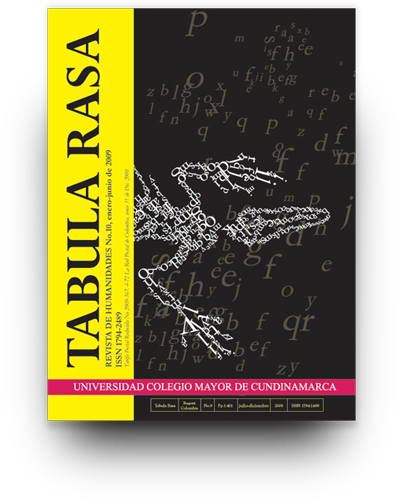Information and Communication Technologies (ICTs) as an Instrument for the Exercise of Rights
Las Tecnologías de la Información y la Comunicación (TIC) como instrumento de ejercicio de derechos
Show authors biography
Information and Communication Technologies (ICTs) burst upon the scene to make accessibility and participation easier to all people for the exercise of their own rights. If we circumscribe to the field of people in dependence situations, ICTs put emphasis, not on issues related to the lack of capacity, but in skills and abilities that can be developed. Thus, they work as powerful tools to seek equal access and, as a result, to improve their quality of life. This work aims to reflect on the processes making easier to overcome obstacles and barriers to people in dependence situations. This in order to examine the fundamentals of their incorporation to social life in a context of growth of the technological offer, where not only technology offer willingness toward the egalitarian goals matters, but it is rather necessary to address its incorporation from different intervention parameters.
Article visits 65 | PDF visits 39
Downloads
Asig Roig, J. 2007. «Reflexiones en torno a la Ley de protección de la autonomía personal». Universitas. Revista de Filosofía, Derecho y Política. 5:3-21
Comité Español de Representantes de Personas con Discapacidad (CERMI) y Fundación Luis Vives. 2003. Estudio Discapacidad y Exclusión Social en la Unión Europea. Tiempo de cambio, herramientas para el cambio. Madrid.
Mcadam, D. y R.M. Fernández, 1990. “Microstructural Bases of Recruitment to Social Movements”. En L. Kriesberg. Rese����� ��� ������� ��� arch in Social Move�ment�s�� �� , Conflict �����s �and�� �Chang � �e. 1-34, Greenwich: Jai Press Inc.
Melucci, A. 1998. “La experiencia individual y los temas globales en una sociedad planetaria”. En Los movimientos sociales. Transformaciones políticas y cambio cultural, Pedro Ibarra y Benjamín Tejerina (eds.). Madrid: Trotta.
Otero Á, et.al. 2004. «Volumen y tendencia de la dependencia asociada al envejecimiento en la población española». Rev Esp Salud Pública, 78:201-213.
Roiz Parra, J. 2003. La recuperación del buen juicio: teoría política en el siglo veinte. Madrid: Foro Interno.
Sánchez Montoya, R. Ordenador y Discapacidad. Guía práctica de apoyo a las personas con necesidades educativas especiales. Madrid: CEPES, 2002




